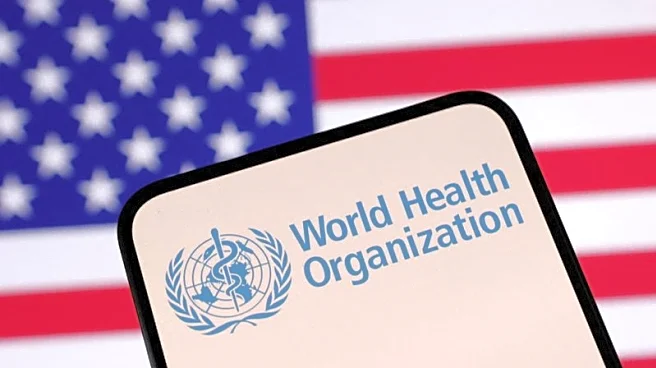What's Happening?
A federal appeals court has ruled that President Trump's universal tariffs were illegal, supporting a previous decision by the Court of International Trade. The ruling highlights the need for congressional oversight on significant economic decisions. Despite the ruling, the tariffs will remain in place temporarily, leaving uncertainty about whether the case will advance to the Supreme Court or return to the trade court. This decision comes amid pressure on the Treasury market and President Trump's pursuit of Federal Reserve's Lisa Cook.
Why It's Important?
The ruling has significant implications for U.S. economic policy and international trade relations. It underscores the importance of checks and balances in economic decision-making, potentially affecting tariff revenues and global trading dynamics. The decision may influence the Treasury market, especially if the U.S. is required to return tariff revenues. Additionally, this development could impact the Federal Reserve's monetary policy decisions, as the market anticipates potential rate cuts.
What's Next?
The future of the tariffs remains uncertain, with potential legal proceedings that could alter their status. Stakeholders, including global trading partners, are closely monitoring the situation. The upcoming U.S. labor market data and Federal Reserve actions may further influence economic conditions and policy decisions. The market is pricing a high probability of a rate cut, which could be affected by this week's economic data releases.
Beyond the Headlines
The ruling may prompt discussions on the balance of power between the executive branch and Congress in economic policymaking. It raises questions about the use of emergency powers for economic measures and the role of judicial oversight in maintaining democratic processes.












